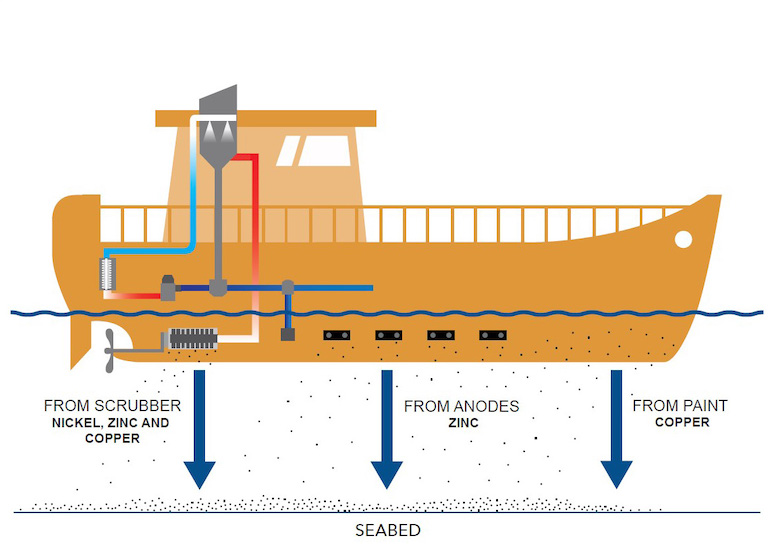Ships are the polluting ‘elephants in the room’ nobody is talking about despite a global drive to make oceans cleaner, according to new research.
Nearly every vessel, from commercial vessels to day-tripper yachts, are continually releasing substantial amounts of toxic metals into the sea, according to the study.

Dr Watson said: “It’s ironic that as the world is working really hard to remove plastic pollution, there is, at the same time, highly polluting vessels continuing to pollute the seas right under our noses.
“The United Nations and the world want healthy seas with sustainable ocean policies awash with more offshore wind farms, aquaculture, and sustainable tourism. All those aims are laudable, but toxic metals from shipping, which is critical to all these activities, is a hidden threat to healthy seas and nobody’s really talking about it.”
Alongside educating boat owners on using less toxic anti-fouling paints and anodes, Dr Watson and colleagues call for urgent legislation to ensure that shipping is front and centre of sustainable ocean policies.
The researchers studied data from the 1980s on the amounts of toxic metals in sediments of the English Channel region from over 300 coastal and offshore sites.
Although they found a steady reduction in overall levels of metal contamination in the seabed from the 1980s, 2010-13 showed an increase partially linked to specific metals involved in shipping activities.
The researchers calculated that all vessels from a sailing boat to a cruise liner release substantial amounts of metals such as copper, zinc and nickel, which then accumulate in the ocean’s sediments.
Copper is used as a biocide in paints to prevent organisms from growing on hulls. These anti-fouling paints are recoated regularly to ensure that the hull remains clean of encrusting barnacles and other marine organisms that slow down boats, making shipping more expensive.
Nearly all boats also have metal blocks attached beneath the waterline. Often called sacrificial anodes, their role is to degrade first, thereby protecting the hull from corrosion and these are often made of zinc.
Finally, increasing numbers of diesel-powered ships have had scrubbers fitted to reduce the emissions of harmful gases to the atmosphere. An unintended consequence of this is the discharge of waste water with high concentrations of metals such as nickel during the exhaust-gas cleaning process.
The Channel is the world’s busiest waterway, used by hundreds of vessels a day, both commercial and leisure craft, and Dr Watson sees the research findings as a ‘canary in the mine’ for global ocean health.
Shipping – both commercial and leisure – is likely to grow as investment takes off in the global blue economy, a bid to ensure the sustainable use of ocean resources for economic growth, improved livelihoods, and jobs while preserving the health of ocean ecosystem.








